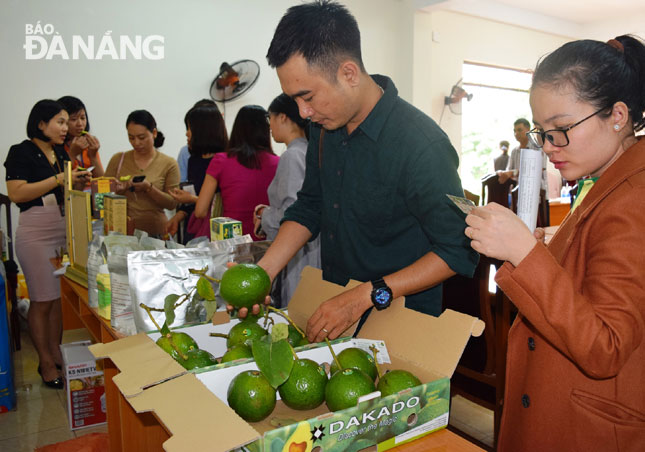Revolutionising agriculture needed in the city
Within the framework of the recent Techfest Viet Nam 2018 in Da Nang, many domestic and foreign start-up founders underscored the importance of promoting Da Nang’s applications of the fourth Agricultural Revolution (also known as Agriculture 4.0) into creating high-quality organic agricultural products. The intention is to bring sustainable economic benefits to farmers, and boost the sustainable development for the community.
 |
| Agriculture businesses should improve the quality of wrapping and labels in order to promote the consumption of agricultural products and stimulate hi-tech agricultural production activities. |
Mr An Chang Doek, Director of the South Korean SG Enesys Company, said that Viet Nam’s agricultural sector shared many similarities with his country’s. In particular, land for farming has been narrowed due to rapid urbanisation and expansion of industrial parks during past decades, while agricultural soils have low fertility and nutrients.
He, therefore, stressed the need for Da Nang, and Viet Nam as a whole, to implement the ‘smart farm’ model like his country.
“Smart farming and precision agriculture involve the integration of advanced technologies into existing farming practices in order to enhance production efficiency and the quality of agricultural products. As an added benefit, they also improve the quality of life for farm workers by reducing heavy labour and tedious tasks”, he added.
Mr An underscored the necessity for the city to send its farmers and agriculture students to foreign countries having agriculture 4.0, such as South Korea, Israel and Japan, in order to learn about and accumulated practical experience in this field.
Mr David Davies, Director of the AgUnity company in Australia, highlighted the significance of using smart phones in managing production processes, and the quality and consumption of agricultural products. The purpose is to help farmers enhance their agricultural productivity, lower operating costs and increase profits.
Mr Ngo Dang Giap, Director of the Human Resource Supply Centre of the Viet Nam Academy of Agriculture, remarked that a number of students from his centre have been sent to Japan for internship and work programmes about agriculture 4.0.
He noted when coming back to the country, these students would use their knowledge and experience that they have acquired from these training programmes into their start-up activities involving agriculture 4.0 in order to bring great benefits to the economic sector in their locality.
Mr Duong Hien Tu, Director of the An Phu Farm Company, underlined in addition to upgrading hi-tech agricultural production technologies, agriculture businesses and farmers should focus on improving the quality of wrapping and labels, as well as building their own brand names in order to promote the consumption of agricultural products and stimulate hi-tech agricultural production activities.